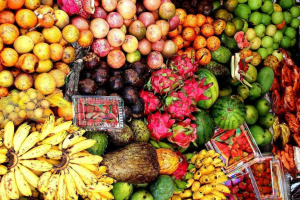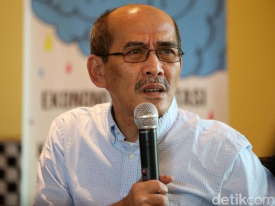Record high income inequality in Indonesia revealed, paylater debt trap and opportunity in business
The Gini ratio index in March 2023 illustrates that the gap in spending between the poor and the rich in Indonesia has increased and reached a record high in the last five years. However, it gives certain business opportunities such as the paylater business.
Economic inequality from household expenditure increased sharply
Statistics Indonesia (BPS) noted that since the Covid-19 pandemic, the expenditure gap has increased. As the economy recovers, the Gini ratio has decreased several times since 2021, although it is still fluctuating because it has shown an increase several times.
In March 2022, the gini ratio reached 0.384, in September 2022 it reached 0.381. Meanwhile, in March 2023 it reached 0.388. This increase touched its highest record since September 2018 or the last five years. This indicates an increase in spending by the rich in Indonesia rising faster than the poorest.
Atgo Mardiyanto, Chief Secretary of BPS, said that a significant increase occurred in urban areas, while inequality in rural areas was stagnant.
The increase of Gini ratio in urban areas was caused by increase in spending of the 20% richest group of people. Meanwhile, spending of 80% of the people in the middle- and lower-income bracket (40% each) actually declined.
"The bottom 40% and middle class of society have slower spending growth than the top 20% group, resulting in inequality," said Atqo, on July 17, 2023.
BPS noted that Indonesia's richest population (20%) contributed at least 46.71% of total expenditure.
This inequality occurs in almost all regions of Indonesia. It increased except in Maluku and Papua which actually decreased, with the highest increases occurring in Java, which rose 0.09 points, and Sulawesi, which rose 0.08 points.
Meanwhile, in urban areas it is in the moderate category from previously low, because the share of spending by the poorest people has shrunk to 16.99%.
On the other hand, inequality in villages is still low with the share of spending by the poor still above 21%.
Meanwhile, according to the World Bank, it still shows a low level of inequality because the portion of the poorest people (40%) is still above 17%.
Risk and opportunity in the paylater business
The growth of online payments has seen an all-time high, especially during the start of the Covid-19 Pandemic when everything has gone digital.
Using, registration, and payment history which is very easy and transparent, certainly tempts users to use the application or feature, as well as various rampant promotions and discounts.
However, with all its convenience it can create a lucrative dependency such as a culture of debt.
Apart from that, in spending, the amount taken is not always how much, but there is extra interest that will increase as the payment due is not paid, as well as certain penalties.
Meanwhile, there is a problem of credit risk. The Financial Services Authority (OJK) said that the ratio of non-performing loans (NPL) in the paylater industry was close to 8% or 7.61% (unhealthy) in September 2022, by April 2023 it decreased to 2.5% (healthy).
Tag
Already have an account? Sign In
-
Start reading
Freemium
-
Monthly Subscription
30% OFF$26.03
$37.19/MonthCancel anytime
This offer is open to all new subscribers!
Subscribe now -
Yearly Subscription
33% OFF$228.13
$340.5/YearCancel anytime
This offer is open to all new subscribers!
Subscribe now






